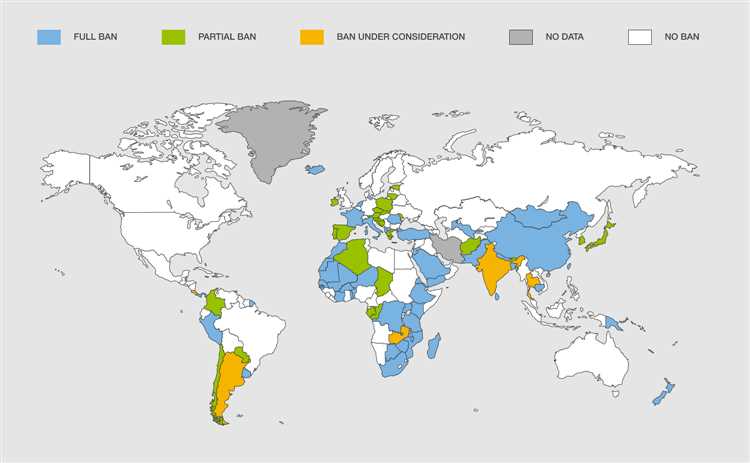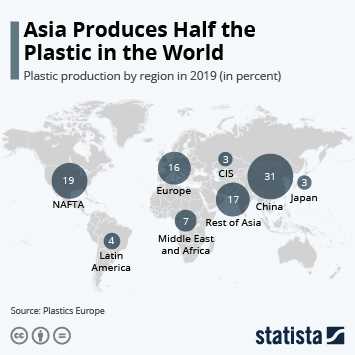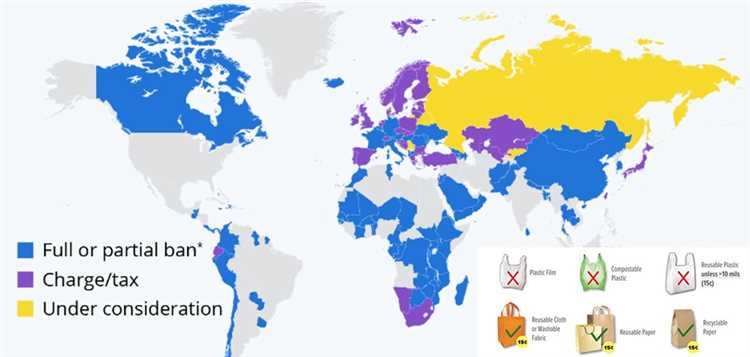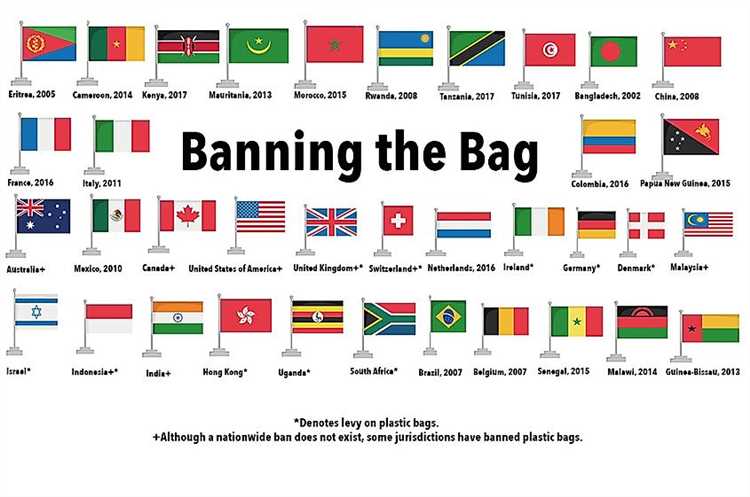
Plastic bags, once considered a convenient solution for carrying groceries and other goods, have now become one of the biggest environmental problems globally. The extensive use of plastic bags has led to a significant increase in pollution, especially in oceans and landfills. As a result, many countries around the world have taken steps to combat this issue by implementing bans and restrictions on the use of plastic bags.
Plastic bags are known for their long lifespan and resistance to degradation, which makes them a major contributor to environmental pollution. They can take hundreds of years to decompose, releasing harmful chemicals and microplastics into the environment throughout this period. Moreover, plastic bags cause harm to wildlife, including marine animals who often mistake them for food or become entangled in them.
Recognizing the urgent need to address this issue, an increasing number of countries have introduced bans on plastic bags. These bans aim to reduce the consumption of plastic bags and promote the use of more sustainable alternatives, such as reusable bags or biodegradable options. By implementing these measures, countries hope to alleviate the detrimental impact of plastic bags on the environment and create a more sustainable future.
- Current Status of Plastic Bag Bans Worldwide
- Plastic Bag Ban Overview
- Regional Variations
- Impact of Plastic Bag Bans
- Global Movement Against Plastic Pollution
- Plastic Bag Bans: A Sustainable Solution
- The Environmental Impact of Plastic Bags
- Banning Plastic Bags: Benefits and Challenges
- Asia: Leading the Way in Plastic Bag Bans
- Europe: Implementing Strict Regulations
- Americas: Varied Approaches and Regional Initiatives
- Canada
- United States
- Africa and Oceania: Increasing Efforts to Curb Plastic Bag Use
- Question-answer:
- How many countries have banned plastic bags?
- Which country was the first to ban plastic bags?
- Is the ban on plastic bags effective in reducing plastic pollution?
- Are there any exceptions or alternatives to the plastic bag ban in certain countries?
Current Status of Plastic Bag Bans Worldwide
Plastic pollution has become a serious environmental issue in recent years, and many countries around the world have taken steps to address this problem by implementing bans on plastic bags. These bans aim to reduce the consumption and production of single-use plastic bags, encouraging the use of more sustainable alternatives.
Plastic Bag Ban Overview
As of the latest available data, a total of XX countries have implemented some form of plastic bag ban. These bans vary in their extent and implementation, with some countries imposing a complete ban on all types of plastic bags, while others focus on specific types such as thin single-use bags.
The specific regulations surrounding plastic bag bans also vary widely. Some countries have set strict penalties for the use or distribution of plastic bags, while others have introduced incentives to encourage the use of reusable bags or alternative materials.
Regional Variations
The implementation of plastic bag bans is not uniform across all regions of the world. Some regions have been at the forefront of the movement, with a high number of countries implementing bans. For example, in Europe, XX% of countries have banned plastic bags, with some countries even going beyond the EU requirements and banning additional plastic products.
In other regions, the progress has been slower, with only a few countries implementing bans so far. However, there is a growing awareness of the issue, and more countries are considering or in the process of implementing plastic bag bans.
Impact of Plastic Bag Bans
Plastic bag bans have shown promising results in reducing plastic waste and pollution. Studies have found a significant decrease in the consumption and disposal of plastic bags in countries that have implemented bans. Additionally, the bans have encouraged the adoption of reusable bags and alternative materials, leading to a shift in consumer behavior towards more sustainable choices.
| Region | Countries with Plastic Bag Bans |
|---|---|
| Europe | XX |
| Asia | XX |
| Africa | XX |
| Americas | XX |
| Oceania | XX |
Despite the progress made, there is still a long way to go in addressing the plastic pollution crisis. Continued efforts are needed, both at the national and international level, to further reduce the consumption of plastic bags and promote sustainable alternatives.
Global Movement Against Plastic Pollution
Plastic pollution has become an increasingly pressing issue in recent years, with detrimental effects on the environment, wildlife, and human health. As a result, a global movement has emerged to combat this growing problem.
International Efforts
Numerous international organizations and initiatives have been established to address the issue of plastic pollution. One example is the Break Free from Plastic movement, which brings together over 1,400 organizations from across the globe to advocate for a reduction in plastic production and consumption.
National Bans
A growing number of countries have taken significant steps towards reducing plastic pollution by implementing bans on plastic bags. One such country is Rwanda, which implemented a total ban on plastic bags in 2008. Other countries that have followed suit include Kenya, France, and Canada.
Public Awareness
Public awareness campaigns have played a crucial role in the global movement against plastic pollution. Organizations like Plastic Oceans International and The Ocean Cleanup have been instrumental in raising awareness about the issue through documentaries, educational programs, and community initiatives.
Innovation and Alternatives
Alongside the movement against plastic pollution, there has been a surge in innovation and the development of alternative materials. Bioplastics, for example, are being explored as a more sustainable alternative to traditional plastics. Additionally, businesses and individuals are embracing reusable materials such as cloth bags and metal straws.
Challenges and Future Outlook
The global movement against plastic pollution still faces many challenges, including the widespread use and production of plastic, as well as the lack of infrastructure for proper waste management in some regions. However, with continued awareness, collaboration, and the adoption of alternative materials, there is hope for a future with reduced plastic pollution.
Plastic Bag Bans: A Sustainable Solution

Plastic bag bans have become an increasingly popular solution to combat the environmental impact of single-use plastic bags. As concerns about pollution and climate change grow, more and more countries around the world are implementing laws to restrict or completely ban the use of plastic bags.
The Environmental Impact of Plastic Bags
Plastic bags are a significant source of pollution and pose a serious threat to the environment. They are made from non-renewable resources such as oil and gas, and their production contributes to carbon emissions and climate change. Additionally, plastic bags are not biodegradable and can take hundreds of years to break down in the environment.
Once discarded, plastic bags often end up in waterways, where they can harm marine life and pollute ecosystems. Animals can become entangled in the bags or mistake them for food, leading to injury or death. Plastic bags also contribute to the global plastic pollution crisis, which affects both land and oceans.
Banning Plastic Bags: Benefits and Challenges
The implementation of plastic bag bans offers several benefits. Firstly, it encourages the use of more sustainable alternatives such as reusable bags, which can significantly reduce plastic waste. Reusable bags are often made from materials like cotton or recycled plastic, which have a lower environmental impact compared to single-use plastic bags.
Plastic bag bans also promote a shift in consumer behavior and increase awareness about the need to reduce plastic consumption. By eliminating the easy availability of plastic bags, individuals are encouraged to bring their own reusable bags or consider more environmentally friendly options. This change in mindset can have a positive long-term impact on reducing plastic waste.
However, implementing a plastic bag ban also presents certain challenges. Businesses and consumers may initially resist the change and find it inconvenient to adapt to new practices. Additionally, alternative packaging options may have their own environmental footprint, and ensuring compliance and enforcement of the ban can be challenging.
Despite these challenges, the benefits of plastic bag bans far outweigh the disadvantages. They are a crucial step towards reducing plastic pollution and promoting a more sustainable future.
Asia: Leading the Way in Plastic Bag Bans
When it comes to taking action against single-use plastic bags, Asia is leading the way. With their growing economies and increasing population, many countries in Asia have implemented strict regulations and bans to curb the use of plastic bags.
One of the earliest adopters of plastic bag bans in Asia was Bangladesh. In 2002, the country became the first in the world to enforce a total ban on polythene bags after they were found to be clogging drainage systems and causing severe flooding during monsoon seasons.
Since then, other countries in Asia have followed suit. China, which has the world’s largest population, implemented a nationwide ban on free plastic bags in 2008. This ban has significantly reduced plastic bag consumption and has prompted the use of reusable bags instead.
In addition to China, several other Asian countries have also taken significant steps towards reducing plastic bag usage. Taiwan, for example, introduced a ban on single-use plastic bags in 2002, and in 2018, they implemented a complete ban on all plastic bags, including those made of biodegradable materials.
Other countries in the region, such as South Korea and Vietnam, have also implemented bans on certain types of plastic bags and have encouraged their citizens to use reusable bags instead.
Overall, Asia is setting an example for the rest of the world when it comes to tackling the issue of plastic bag pollution. These bans and regulations have not only helped to reduce plastic waste but have also raised awareness about the detrimental effects of plastic on the environment.
As the rest of the world grapples with the plastic bag problem, Asia serves as a shining example of how effective bans and regulations can be in combating plastic pollution. It is clear that the region is committed to finding sustainable solutions for a cleaner and greener future.
Europe: Implementing Strict Regulations
Europe has been at the forefront of the movement to ban plastic bags, with many countries implementing strict regulations to reduce their use. The European Union has been a driving force in this effort, adopting legislation to limit the production and consumption of single-use plastic products, including bags.
One of the first countries in Europe to ban plastic bags was Ireland, which introduced a levy on plastic bags in 2002. The success of this initiative led several other European countries to follow suit. In 2011, Italy became the first country in Europe to completely ban the distribution of non-biodegradable plastic bags, while other countries such as France and Germany implemented similar bans shortly after.
These bans have had a significant impact on reducing the consumption of plastic bags in Europe. For example, in Ireland, the introduction of the plastic bag levy resulted in a 90% reduction in the use of plastic bags within the first year. Similarly, in Italy, the ban on non-biodegradable plastic bags led to a 55% decrease in plastic bag usage.
| Country | Year of Ban |
|---|---|
| Ireland | 2002 |
| Italy | 2011 |
| France | 2016 |
| Germany | 2016 |
In addition to national bans, the European Union has also taken steps to tackle plastic pollution by adopting the Single-Use Plastics Directive in 2019. This directive sets targets for the reduction of single-use plastics, including plastic bags, and requires member states to develop national plans to achieve these targets.
Overall, Europe has made significant progress in reducing the use of plastic bags through the implementation of strict regulations. The success of these initiatives serves as a model for other regions around the world, highlighting the importance of taking strong action to combat plastic pollution.
Americas: Varied Approaches and Regional Initiatives

The Americas region has shown a range of approaches when it comes to addressing the issue of plastic bags. While some countries have implemented strict measures to ban or restrict the use of plastic bags, others have taken a more lenient approach.
Canada
Canada has taken a regional approach to addressing plastic bag consumption. Several provinces have implemented bans or fees on single-use plastic bags, including British Columbia, Prince Edward Island, and Quebec. These measures have been successful in reducing plastic bag use and promoting more sustainable alternatives.
United States

The United States has taken a more decentralized approach to banning plastic bags. While some cities and states have implemented their own bans or fees, there is no nationwide ban on plastic bags. California was the first state to ban single-use plastic bags in 2014, and several other states, including Hawaii and New York, have since followed suit.
| Country | Year of Ban | Type of Ban |
|---|---|---|
| Canada | Varied by Province | Bans and fees |
| United States | Varied by State | Bans and fees |
These regional initiatives in the Americas have helped to raise public awareness about the environmental impact of plastic bags and have encouraged individuals and businesses to adopt more sustainable practices. As more countries in the region take action, the Americas are moving towards a more plastic bag-free future.
Africa and Oceania: Increasing Efforts to Curb Plastic Bag Use
The continents of Africa and Oceania have been making significant efforts to reduce the usage of plastic bags in recent years. These regions are home to diverse ecosystems and unique wildlife, making it crucial to protect the environment from the harmful effects of plastic waste.
In Africa, several countries have taken strong measures to ban or restrict the use of plastic bags. Kenya, for example, implemented a nationwide ban in 2017, becoming one of the strictest anti-plastic bag countries in the world. Rwanda has also had success in curbing plastic bag use by imposing heavy fines and promoting alternative packaging options.
Oceania, too, has been actively addressing the plastic bag issue. Australia has implemented various state-level bans on plastic bags, with the Australian Capital Territory being the first to introduce a ban in 2011. New Zealand is also taking steps to reduce plastic bag consumption, with a country-wide ban coming into effect in 2019.
Efforts to curb plastic bag use in these regions extend beyond legislation. Awareness campaigns and educational programs have been launched to promote sustainable alternatives and encourage behavior change. Community clean-up initiatives and recycling programs are also gaining momentum, helping to reduce plastic pollution in and around these countries.
While progress has been made, there is still work to be done. Governments, businesses, and individuals must continue to prioritize the reduction of plastic bag use and explore innovative solutions. By working together, Africa and Oceania can lead the way in creating a cleaner and greener future.
Question-answer:
How many countries have banned plastic bags?
Currently, more than 127 countries have implemented some form of plastic bag ban. However, the specific restrictions and regulations vary from country to country.
Which country was the first to ban plastic bags?
The first country to ban plastic bags was Bangladesh. In 2002, they became the pioneers in implementing a nationwide ban in order to address the severe environmental issues caused by plastic waste.
Is the ban on plastic bags effective in reducing plastic pollution?
Yes, the ban on plastic bags has shown to be effective in reducing plastic pollution in many countries. By eliminating or significantly reducing the use of plastic bags, it helps to minimize their impact on the environment, particularly in terms of marine life and ecosystems.
Are there any exceptions or alternatives to the plastic bag ban in certain countries?
Yes, some countries have exceptions or alternative solutions in place to accommodate certain situations or needs. For example, in some cases, thicker, reusable plastic bags or biodegradable bags are allowed. Furthermore, certain countries have imposed taxes or fees on plastic bags instead of implementing an outright ban.